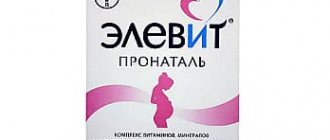Ascorbinka
is a fortified drug used in the treatment of diseases of the digestive tract, to normalize metabolic processes. The role of ascorbines is generally recognized: it is necessary and very useful for normal performance and the performance of all vital functions in the human body. It comes as part of food or in a finished medical product. Ascorbic acid during pregnancy is especially necessary for the proper development of the fetus in the womb. With a simple diet, the expectant mother may develop a deficiency of vitamins and other microelements. Many pregnant women are concerned about the question: how harmless is ascorbic acid in their situation and can it provoke termination of pregnancy?
Indications
According to the instructions, the drug is prescribed for vitamin deficiency or hypovitaminosis C and when the human body has an increased need for it:
- During the period of intensive growth of a newborn with artificial feeding.
- If the mother has an incorrect or unbalanced diet.
- For prolonged stress, burn diseases, hard work, chronic infectious diseases.
- Ascorbic acid with glucose is prescribed during pregnancy, as well as during breastfeeding.
- In case of excess (intoxication) of iron in the body.
In laboratories, ascorbate is used to label red blood cells. Vitamins for pregnant women are useful and their positive effects have long been proven by doctors:
- It helps strengthen the walls of blood vessels in the mother and in the placenta. By reducing the risk of peeling of the latter, it improves the processes of supplying the fetus with the necessary amount of oxygen during its gestation period.
- Ascorbic acid during pregnancy is also necessary to strengthen the immune system, since the expectant mother is susceptible to such pathologies as: bleeding and weakened gums, excessive sensitivity of the skin.
- It also has a positive effect on a woman’s psychomotor skills during pregnancy, relieving her of constant depressive states, changes in stress, and increased fatigue.
- By helping to neutralize metabolic breakdown products, ascorbine helps the body more easily cope with toxicosis.
- When taken, the body completely absorbs the iron contained in it, which prevents the formation of anemia - this affects the lion's share of women during pregnancy.
What is ascorbic acid?
Ascorbic acid is an antioxidant whose chemical name is vitamin C. This is a water-soluble element. In pharmacies it can be found, most often, in the form of round yellow tablets. Taking ascorbic acid is an excellent way to strengthen the immune system .
It is taken to treat or prevent colds. For the normal functioning of the body's life support systems, a daily supply of vitamin C is required. The main properties of the element include:
- memory improvement;
- strengthening blood vessels;
- participation in the construction of collagen;
- getting rid of toxins;
- maintaining the strength of teeth and bones;
- aid in iron absorption;
- combating the harmful effects of electromagnetic rays and x-rays;
- stabilization of metabolism.
Most often, taking a vitamin is prescribed when symptoms of its deficiency appear. Vitamin C deficiency is characterized by a decrease in the body's defenses. The immune system is suppressed and health worsens. Long-term vitamin deficiency is fraught with the development of serious diseases. Symptoms of vitamin C deficiency include:
- sleep disturbance;
- decreased visual acuity; m
- weight gain;
- rapid fatigue and decreased performance;
- bleeding gums;
- frequent colds;
- joint pain.
ON A NOTE! Ascorbic acid is involved in the formation of serotonin. This hormone is responsible for a person’s good mood.
Application
Is it possible to take ascorbic acid during pregnancy to treat colds? Everyone knows from childhood that vitamin C is very useful for colds. A woman can take it during pregnancy, but in permitted quantities and in the first trimesters, because other drugs are prohibited during this period.
The minimum dosage in the II and III trimesters is 60 mg. It must be adhered to. Otherwise, a fetus that has adapted to increased doses may develop withdrawal syndrome. There have been cases when pregnant women took an increased dose of the drug during treatment. This was associated with the development of scurvy in the newborn. And ascorbic acid administered intravenously during pregnancy caused threats of miscarriage. The minimum dosage of the drug during lactation should be no more than 80 mg. A nursing diet that includes an adequate amount of the vitamin is quite sufficient to prevent deficiency in the baby. Theoretically, there is a danger for the baby when the mother uses ascorbic acid in high doses. It is strictly necessary to adhere to the daily vitamin intake during breastfeeding. As for injection forms of treatment, studies on the use of ascorbines in animals have not been conducted. It is still unknown whether the administration of the vitamin by injection in pregnant women can disrupt reproductive functions. At least, such injections are prescribed to women during pregnancy in emergency cases.
Pregnancy planning and vitamin C
Preparing for conception is the same crucial period as the next 9 months of bearing a child. In order to create the most favorable and comfortable conditions for the future baby, the woman undergoes examinations, undergoes treatment if necessary, eats right, and strengthens the body. The key to preparing for conception is to saturate the body with minerals and vitamins so that future pregnancy proceeds without complications.
Taking vitamin C during pregnancy planning is especially important for those women who previously smoked and relatively recently got rid of this bad habit. It also helps to better absorb iron and is an excellent prevention of toxicosis, vascular disorders, and anemia. Ascorbic acid improves immunity, eliminates inflammation, neutralizes bacteria and toxins.
Rich in vitamin C:
- green and red peppers;
- gooseberry;
- tomatoes;
- spinach;
- sorrel;
- sea buckthorn;
- cauliflower;
- strawberries;
- black currant;
- lemon;
- rose hip.
Rosehip tea, sauerkraut, and berry compote help diversify your diet.
Doctors' recommendations for use
Medical specialists recommend that women take vitamin complexes: “Vitrum” or “Elevit”, and not ascorbine in its pure form. They contain the required amount of: vitamin C, iron, as well as magnesium B6 during pregnancy, these components are necessary for mother and child. In complexes they are balanced and this is quite enough to prevent deficiency of these microelements.
Contraindications and side effects
Taking vitamin C is harmful even in moderate quantities if there are contraindications. If they are present, taking the medication is impossible. The following contraindications are identified:
- diabetes;
- thrombophlebitis;
- allergic reaction;
- stomach diseases;
- thrombosis.
In case of overdose and individual intolerance, side effects . Their appearance is a reason to stop taking it. An overdose is characterized by decreased performance, nausea and stomach pain. The woman is indicated for hospitalization and examination.
Dosage
Preparations in the form of dragees, powders, as well as diluted lyophilisate are taken after meals. The dosage for preventive purposes is 1-2 pieces (dragées) per day in normal condition. And during pregnancy, for 15 days - 6 pieces (300 mg), and then - 2 pieces (100 mg) per day. Before use, the powdered drug is diluted in the following proportions: 1 g of powder per 1 liter of juice or water. During pregnancy, ascorbic acid in solution is administered intramuscularly or intravenously 50÷150 mg. In case of poisoning, it is prescribed in an amount of 3 g per day.
The optimal daily dosage during pregnancy is 80÷100 mg. If a woman is unable to quit smoking, the daily dose of the drug may increase to 150 mg. Moreover, it is not recommended to increase the portion yourself. And if a doctor prescribes complexes, then they already contain a certain proportion of the drug. Don't forget that all good things should be in moderation. Ascorbine is able to penetrate the placenta, and the fetus, absorbing it, adapts and develops an unpleasant and dangerous reaction. It manifests itself in the form of withdrawal, in other words: at large dosages, ascorbic acid terminates pregnancy. Therefore, it cannot be abused.
Vitamin C overdose during pregnancy
This vitamin is found in many fruits, vegetables, berries and herbs that pregnant women eat. If at the same time she includes ascorbic acid tablets in her diet, an overdose of vitamin C may occur. In this case, the following is observed:
- insomnia;
- headache;
- tides;
- temperature increase.
To avoid this effect, taking vitamin complexes and medications should be agreed with your doctor.
Products containing vitamin C
You can replenish the deficiency in the body by introducing foods such as:
- Tomato
- Sweet pepper (red)
- Melons
- Rowan chokeberry
- Spinach and other greens
- Broccoli
- White cabbage)
- Black currant
Ascorbic acid can not only be useful for women during pregnancy, but also seriously harm them. Therefore, in its pure form, the substance should be used very carefully and responsibly. It is best to reconsider your diet and replenish their deficiency with products containing vitamin C and other microelements important for the fetus.
Meet “ascorbic acid”
Ascorbic acid is vitamin C, the beneficial properties of which have been known to everyone since childhood. This compound is indispensable during seasonal viral diseases. Due to its ability to increase interferon synthesis, ascorbic acid is an excellent means of enhancing immunity. In addition, vitamin C strengthens blood vessels and improves the condition of bones and cartilage. A lack of this organic compound in the body can manifest itself in slow healing of wounds, bleeding gums, and the appearance of bruises even when pressing on the skin with almost no effort. At the same time, the person becomes lethargic and irritable, he is overcome by depression and joint pain. Do expectant mothers need ascorbic acid? Of course, yes, although you shouldn’t overuse vitamin C.
Pharmacy drugs
Ascorbic acid can be the main active compound or be part of a multivitamin complex, where it is supplemented with other important vitamins, as well as micro- and macroelements. Monopreparations based on ascorbic acid are available in such dosage forms.
- Round tablets in white, orange or pink. The dosage of vitamin C in one tablet can range from 25 to 500 mg. Depending on the manufacturer, dextrose, sucrose, crospovidone, lactose, dyes and other substances are added to it.
- Dragees that are yellow in color and spherical in shape. They often contain 50 mg of ascorbic acid.
- Effervescent tablets that when dissolved in water form a sweet lemon or orange drink. They usually contain 500-1000 mg of active compound.
- Powder that is diluted with water for internal use. It is presented as white or colorless crystals, packaged in bags of 2.5 and 1 gram. This powder contains only ascorbic acid.
- A solution that is used for intramuscular or intravenous administration. This vitamin C is presented as a transparent 5-10% liquid, poured into ampoules of 1-2 milliliters. In addition to the active substance, it contains sodium bicarbonate, disodium edetate, cysteine and other compounds.
Possible harm
Ascorbic acid can bring not only benefits, but also harm if you do not follow the rules of administration and dosage. When taking large amounts of the vitamin in early pregnancy, the likelihood of spontaneous abortion increases, because it increases the tone of the smooth muscles of the uterus.
Chronic use of large doses may cause the child to develop symptoms of scurvy, since ascorbic acid is addictive. In this case, the mother’s body will also feel signs of deficiency when the vitamin is withdrawn.
When consuming large dosages, the symptoms of diabetes may worsen. With increased sensitivity, the following symptoms may appear:
- stool disorders;
- flatulence;
- epigastric pain;
- nausea;
- vomit;
- migraine;
- hives.
These are signs of an allergic reaction to ascorbic acid. The appearance of such symptoms during pregnancy can increase the likelihood that the unborn child will be allergic, since even during intrauterine development it begins to come into contact with histamines in the mother’s blood.
Vitamin C is contraindicated in a number of cases:
- individual sensitivity to ascorbic acid;
- tendency to thrombosis;
- diabetes mellitus (when consumed simultaneously with glucose);
- increased stomach acidity.
If you have the above conditions, you should definitely consult a doctor to choose the optimal complex of vitamins and the right dosage of the substance.
As you know, ascorbic acid belongs to the category of organic compounds and is an essential substance in the human diet. It functions as a restorer of certain metabolic processes and is also an ideal antioxidant. However, not every person knows the full benefits and harms of ascorbic acid.
The main active element in this drug is vitamin C. Ascorbic acid is a white powder that dissolves almost instantly in water and other liquids. Ascorbic acid cannot cause harm to human health unless consumed in large quantities. The basis of all problems lies in overdose.
The benefits of this drug are judged by the signs of its deficiency in the body. Vitamin C deficiency is expressed by the following symptoms:
- Weakened immunity and general malaise.
- Paleness of the skin.
- Increased wound healing time.
- Bleeding gums.
- Anxiety, poor sleep and leg pain.
As you know, ascorbic acid contains vitamin C, which prevents the listed symptoms from developing.
- This drug improves immunity, normalizes cholesterol levels, increases hemoglobin, improves blood composition, and strengthens the walls of blood vessels.
- Ascorbic acid also has other beneficial properties: it promotes the production of the required amount of collagen, intended for the restoration of cells, tissues and blood vessels.
- Ascorbic acid vitamins strengthen the cardiovascular system.
- Prevents the development of bronchitis.
- Reduces the risk of developing cancer. Ascorbic acid helps the immune system fight dangerous microorganisms.
- Protects the body from toxic substances.
Based on all the listed factors, it becomes clear whether ascorbic acid is useful or whether we are using it in vain.
The main cases of taking ascorbic acid in large dosages:
- People who have suffered severe carbon monoxide poisoning, as well as other harmful substances. In case of poisoning, vitamin C quickly restores all necessary processes in the body.
- This drug is taken in large quantities during the changing seasons, when the body is depleted and lacks all the necessary vitamins. Along with the medication, you should add fruits and vegetables containing vitamin C to your diet. All this will strengthen your immune system and help you get through the off-season period painlessly.
- Pregnancy. During this period, women also experience a lack of ascorbic acid. However, they can only take it as prescribed by a doctor. He usually prescribes pregnant women a third more of the drug than they took before pregnancy.
- Smoking. This addiction is equivalent to carbon monoxide poisoning, and therefore requires an increased dosage of vitamin C. The fact is that ascorbic acid quickly restores the acidic environment in the body.
To summarize, we can conclude that ascorbic acid is harmful only in the following cases:
- If you have problems with the gastrointestinal tract.
- In case of overdose.
- For people suffering from kidney diseases.
Where to look for ascorbic acid?
The drug is well tolerated, but sometimes there are side effects such as:
- nausea;
- gag reflex;
- abdominal pain;
- increased acidity of gastric juice, heartburn, gastritis;
- digestive disorder;
- migraine;
- increased fatigue;
- nervous overexcitation, insomnia;
- hyperglycemia;
- the appearance of sugar in the urine;
- hypokalemia;
- crystalluria, oxalosis, nephrocalcinosis, renal failure;
- increased blood pressure;
- violations of the quantitative composition of blood;
- body rashes, skin itching, eczema;
- anaphylaxis.
Excess vitamin is excreted in the urine. Abuse of the drug can cause negative reactions from the gastrointestinal tract:
- nausea;
- vomiting;
- diarrhea;
- bloating;
- inflammation of the mucous membrane.
With long-term use of large doses, severe side symptoms are observed. There is a high risk of hypervitaminosis, ulcerogenesis, damage to the renal apparatus and insular pancreatic dysfunction.
Possible deterioration of peripheral vascular permeability, leading to insufficient tissue nutrition, increased blood clotting, hypertension, microangiopathy.
Symptomatic therapy is recommended. If you accidentally take a potentially toxic dose, you should empty your stomach and take a sorbent. Sometimes a laxative is prescribed.
Yes, yes, that’s what we used to call flat white tablets or round yellow dragees. Remember how coveted they were in childhood. And, having found the treasured bottle at home, who refused to gobble up several things at once? So how could we harm ourselves?
Ascorbic acid itself is harmless. Its overdose brings unpleasant consequences. And only when using a synthetic product (injections or tablets). Excess vitamin contained in vegetables and fruits is almost completely eliminated by the body.
So, the harm of ascorbic acid:
- It greatly increases blood clotting. Therefore, there is a high risk of blocking all vessels with large and small blood clots. Who hasn't heard the terrible word thrombus?
- Excess ascorbic acid causes severe pain in the stomach. Heartburn, pain, and nausea may occur. Because acid quickly eats away the walls of the stomach.
- Promotes the formation of sand and stones in the kidneys. This is with regular overdose.
- The functioning of the pancreas is disrupted.
- An excess of ascorbic acid disrupts metabolism in pregnant women. And this is fraught with unpleasant consequences for the unborn child. He may already be born with allergies.
- An allergic reaction may occur.
benefits and harms of dogwood for the health of the body
Access is limited by a court decision or on other grounds established by the legislation of the Russian Federation. The network address that allows you to identify a site on the Internet is included in the Unified Register of domain names, page indexes of Internet sites and network addresses that allow you to identify sites on the Internet “Internet” containing information the distribution of which is prohibited in the Russian Federation.
A network address that allows you to identify a site on the Internet is included in the Register of domain names, indexes of pages of sites on the Internet and network addresses that allow you to identify sites on the Internet containing information distributed in violation of exclusive rights.











